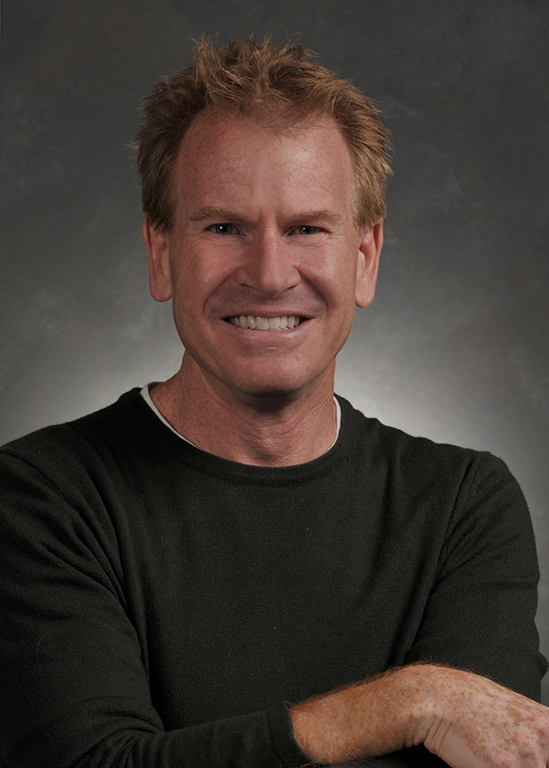A School for Success
The smarter way to stay on top of broadcasting and cable industry. Sign up below
You are now subscribed
Your newsletter sign-up was successful
When Joe Marchesani met Patrick Esser for the first time, in 1973, Marchesani, an assistant professor at the University of Northern Iowa, wasn't exactly sensing executive material.
“I'm sitting there in my office, and I see this young kid who's so painfully shy, he's trying just to get up the nerve to come in,” recalls Marchesani, who teaches audio-visual instruction at the Cedar Rapids university. “I remember thinking he'd have trouble just making it through school.”
So much for first impressions. Shortly after his meeting with Marchesani, Esser changed his major from psychology to communications media. Thirty-two years later, he was named CEO of Cox Communications Inc., the third-largest U.S. cable company.
When asked to name mentors who helped inspire his professional achievements, Esser points immediately to Marchesani. Now it's Esser's turn to offer inspiration to a new generation of aspiring business professionals. He's one of nine cable executives scheduled to address college students this year as part of a new speaking tour arranged by The Cable Center, a Denver-based industry educational organization.
The Cable Center's “Mavericks Lecture Series” will bring high-ranking industry figures from the operations and programming worlds together with students at universities across the country, beginning Sept. 19 when Esser visits the University of Florida.
The 2006 series concludes Nov. 9, with Rich Cronin, president of GSN: The Network for Games, at Northwestern University's Medill School of Journalism. (GSN's senior VP of Interactive Entertainment, John Roberts, will appear with Cronin.)
Broad ambitions
Cable Center organizers say the program is meant to encourage promising students to consider careers in the cable industry, as well as promote the industry's endeavors to the world of academia at large.
The smarter way to stay on top of broadcasting and cable industry. Sign up below
The schedule of seven lectures in less than 45 days also signifies broadening ambitions for the not-for-profit Cable Center, which is fighting criticism that it is an insular institution with little influence beyond Colorado.
“We don't want to be Denver-centric,” says Dolly Bonner, director of The Cable Center's Programming Institute. “We want to be national.”
Tony Fox, an executive VP for MTV Networks (MTVN) who will speak at the University of Southern California on Oct. 2, agrees that the center needs to extend its reach. “A lot of The Cable Center has been funded by big-bucks cable pioneers, but for it to be successful, it needs to reach out to the general public,” says Fox, who manages corporate communications for MTVN's Comedy Central, Spike TV and TV Land networks, plans to talk to students from USC's Marshall School of Business about career opportunities in cable as the industry embraces “a brave new world” of technologies like broadband Internet video distribution.
While participants in the series say appearing before college audiences gives them a chance to help young people identify career possibilities, they readily acknowledge selfish motives.
“You get feedback you don't normally get in the very cozy confines of the bubble we've built in the television business,” says Evan Shapiro, executive VP and general manager of Rainbow Media Holdings LLC's Independent Film Channel, who will speak at the University of Texas in Austin on Nov. 2.
“It's a way to think about what you're saying differently,” Cox's Esser agrees. “They really don't care what we did the last 50 years. They want to know what we're going to do today and where this business is going. They're much more questioning.”
Career paths
Shapiro, who has been an adjunct professor at New York University and lectures occasionally at the Columbia School of Business and elsewhere, won't shy away from the fact that he dropped out of college after one year at the University of Massachusetts.
“It isn't a roadmap, per se, but it shows you that you don't have to go through all the traditional models that everybody tells you you have to go through,” Shapiro says.
He also plans to address an issue he says perplexes many media-industry professionals: aligning personal ethics and life ambitions with a business world that often seems callous and driven by greed. “You can make money and be successful and remain true to yourself,” he says. “Those things are not mutually exclusive.”
Another benignly ulterior motive for the speakers is the recruitment opportunities presented by lecture halls filled with bright young potential employees. “Very selfishly, I want to hire these people,” says Cox's Esser.
And as Shapiro notes, it goes both ways.
“I know I'm going to end up working for one of these people someday,” he says. “[Stuff] like that does happen.”
Media, Math and Myth blogger Stewart Schley writes about media, telecommunications and the business of sports from Denver. He is currently writing a book about the transformation of the U.S. cable television industry.

